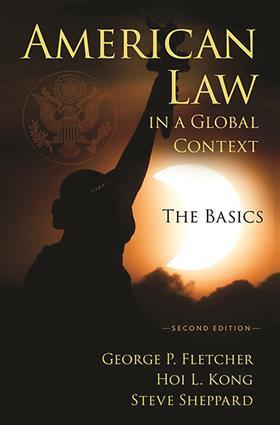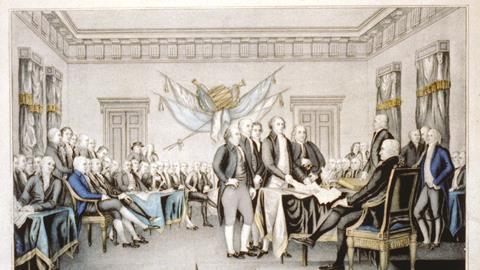American Law in a Global Context: The Basics (2nd edition)
George P. Fletcher, Hoi L. Kong and Steve Sheppard
£120, Oxford University Press
★★★★✩
British history has been marked by three events that could – with tongue in cheek – be described as ‘Brexits’. The most recent one is obvious and the long-term results are still up for grabs, so I won’t say more.
The first, Henry VIII’s Act of Supremacy purporting to remove the Pope’s authority from the English church, helped create a sense of English exceptionalism and cultural independence from Europe which – for good and ill – shaped England’s interactions with the rest of the world over subsequent centuries.
The other, ‘other Brexit’, however, was not the UK exiting anything, but the North American colonies departing Britain. 1776 And All That split the British nation in two – and however we may describe the colonies, they were linguistically and culturally very definitely extensions of the Mother Country. Having carried out their own ‘Brexit’, the colonies – re-established as the United States – set off on their own path. What the new US did retain, however, was common law; recasting it and rebranding it, sure, but also universalising it and letting it loose on a new stage.

This work sets itself up as an introduction to American law for those from other jurisdictions looking to study it. In those terms, it is comprehensive and useful. Beginning with the basics – the features of common law reasoning, the underlying theory and philosophy of the common law and the influence of history upon it – the work provides a helpful theoretical grounding. Where the work is especially interesting is in its analysis of the distinctive features of the American system, such as the federal nature of the constitution, separation of powers, and the comprehensive judicial review jurisdiction that seems to give the judicial branch such significant power in the constitution.
As, in effect, an introductory textbook, the work is well designed. Each section follows a rough format of commentary, extracts from case law or other works to illustrate key points, and a set of self-test questions for students to consider. As an introduction for students, it hits the brief. It is also a gentle introduction to American law for those who might want to read further.
James E Hurford is a solicitor at the Government Legal Department, London
































No comments yet